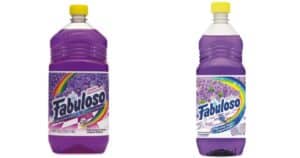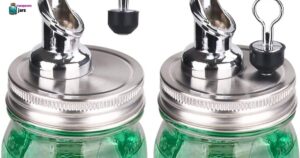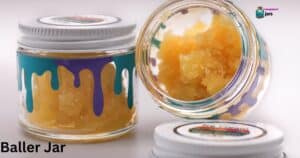Microwaving food in mason jars has become a popular trend among individuals who seek convenience and a sense of connection to a rustic, homemade style of cooking. However, before placing these iconic glass containers into the microwave, it is crucial to consider their safety. In this article, we will explore the factors that determine whether mason jars are microwave-safe and provide tips on how to check for this crucial feature.
We will discuss the potential risks associated with microwaving mason jars and offer alternative options for safely heating food in these containers. By understanding the limitations and best practices, you can enjoy the benefits of using mason jars without compromising your safety or the quality of your meals.
Key Takeaways
- Mason jars can be safely microwaved if certain precautions are taken
- It is important to check the condition of the jar and remove metal lids before microwaving
- Factors such as composition, design, and intended usage determine if mason jars are microwave-safe
- To check if a mason jar is microwave-safe, it can be tested by heating water in the jar and checking for any issues
Safety Considerations for Microwaving Mason Jars

Safety precautions must be taken when microwaving mason jars to prevent potential hazards. While mason jars are generally made of microwave safe materials, it is important to follow specific guidelines to ensure safe usage. When heating food in glass containers, it is crucial to ensure that the jar is in good condition without any cracks, chips, or damage. This is because any imperfection in the glass can cause it to shatter or explode when exposed to the extreme heat of the microwave.
It is recommended to remove any metal lids or bands before microwaving, as they can create sparks and pose a fire hazard. To prevent overheating, it is advisable to heat food in shorter intervals, stirring or shaking the contents in between. By following these safety considerations, one can safely microwave food in mason jars without risking any potential hazards.
Factors That Determine if Mason Jars Are Microwave-Safe
Factors to consider when determining if mason jars are microwave-safe include their composition, design, and intended usage.
- Composition: Mason jars are typically made of glass, which is generally microwave-safe. However, it is important to ensure that the glass used in the jar is not too thin or fragile, as it may crack or shatter when exposed to high heat.
- Design: The design of the mason jar plays a crucial role in its microwave safety. Jars with metal lids or closures should not be microwaved as they can cause sparks or damage to the microwave. Additionally, jars with narrow necks or sharp edges may heat unevenly or be difficult to handle when hot.
- Intended Usage: Mason jars are commonly used for canning and preserving foods, but their microwave safety may vary depending on their intended usage. While they are generally safe for heating liquids, it is important to avoid microwaving jars that have been previously sealed or heated in a canning process, as this can create pressure and cause the jar to explode.
It is recommended to always perform microwave-safe testing or consult the manufacturer’s guidelines before using mason jars in the microwave, especially when heating liquids.
How to Check if Your Mason Jars Are Microwave-Safe
To determine if your mason jars are microwave-safe, you can perform a simple test. First, fill the jar with water, leaving some space at the top for expansion. Place a microwave-safe thermometer in the water. Next, place the jar in the microwave and heat the water on high for one minute. After one minute, carefully remove the jar from the microwave using oven mitts or a towel, as it may be hot.
Check the temperature of the water using the thermometer. If the water is significantly hotter than the jar, it indicates that the jar is not microwave-safe. However, if the jar and water are a similar temperature, it suggests that the jar is safe for heating liquids in the microwave. Repeat this test with different jars to ensure consistent results.
Potential Risks of Microwaving Mason Jars
Microwaving mason jars poses certain risks that should be considered. While mason jars are generally considered microwave-safe, there are some potential hazards associated with using non-microwave-safe containers:
- Shattering: Non-microwave-safe mason jars can shatter due to the rapid heating and uneven distribution of heat in the microwave. This can result in hot food or liquid splattering, causing burns or injuries.
- Chemical leaching: Some non-microwave-safe containers may contain harmful chemicals that can leach into food when exposed to high temperatures. This can pose a health risk, especially if the container is made of materials such as plastic or metal.
- Fire hazards: Certain materials, such as metal lids or decorative elements on mason jars, may cause sparks or fires when subjected to microwave heat.
Using microwave-safe containers, on the other hand, provides several benefits:
- Safety: Microwave-safe containers are specially designed to withstand the heat and pressure generated in a microwave, reducing the risk of accidents or injuries.
- Convenience: Microwave-safe containers allow for easy and efficient reheating or cooking of food, making meal preparation quick and convenient.
- Versatility: Microwave-safe containers come in various sizes and shapes, allowing for versatile use in microwaves, ovens, and even freezers.
It is essential to always check if your mason jars are microwave-safe before using them to ensure the safety of both you and your food.
Tips for Safely Microwaving Food in Mason Jars

When microwaving food in mason jars, it is important to use microwave-safe jars to avoid the risk of glass shattering. Look for jars that are specifically labeled as microwave-safe. Additionally, it is recommended to avoid extreme temperature changes, such as placing a cold jar directly into a hot microwave or vice versa, as this can also cause the glass to break microwave mason jars. By following these tips, you can safely microwave your food in mason jars without any accidents.
Microwave-Safe Mason Jars
Mason jars that are deemed microwave-safe can be used to safely heat food in the microwave. Here are three important tips to consider when using microwave-safe mason jars for meal prep:
- Look for the microwave-safe label: Before using a mason jar in the microwave, ensure that it is specifically labeled as microwave-safe. This label indicates that the jar can withstand the heat and pressure generated in the microwave without shattering.
- Use caution with metal lids: While the glass jar itself may be microwave-safe, metal lids can cause sparks and potential damage to the microwave. It is recommended to remove the metal lid or replace it with a microwave-safe alternative, such as a microwave-safe plastic lid or a microwave-safe paper towel.
- Handle with care: When removing the mason jar from the microwave, use oven mitts or a kitchen towel to protect your hands from the heat. The jar may become hot during the heating process, so it’s important to handle it with caution to avoid burns or accidents.
Avoiding Glass Shattering
To minimize the risk of glass shattering, it is important to handle microwave-safe mason jars with caution and follow specific guidelines. By following these tips, you can safely microwave food in mason jars without any accidents or glass explosions.
- Choose microwave-safe mason jars: Make sure the jars you use are specifically labeled as microwave-safe to ensure they can withstand the heat and pressure.
- Remove metal components: Take off any metal lids or bands before microwaving, as they can cause sparks and potentially shatter the glass.
- Avoid extreme temperature changes: Gradually heat or cool your mason jars to prevent sudden temperature changes that can lead to glass breakage.
- Use a microwave-safe plate or bowl: Place the mason jar on a microwave-safe plate or bowl to provide extra support and distribute heat evenly.
Alternative Options for Heating Food in Mason Jars
An alternative option for heating food in mason jars is by using a microwave-safe container. While mason jars are not recommended for direct use in the microwave due to the risk of glass shattering, there are other options available that can safely heat your food. Here are three alternative methods for reheating food in mason jars:
- Transfer the food from the mason jar to a microwave-safe container: This allows you to heat the food without the risk of glass shattering. Make sure to choose a container that is suitable for the microwave and has a lid for easy reheating.
- Use a microwave-safe plate or bowl: If you don’t have a microwave-safe container, transferring the food to a microwave-safe plate or bowl is another option. This ensures even heating and reduces the risk of accidents.
- Opt for stovetop reheating: If you prefer not to use the microwave, you can transfer the contents of the mason jar to a saucepan or skillet and reheat it on the stovetop. This method allows for better control over the heat and can be used for both liquid and solid foods.
FAQ’s
Can I Use Mason Jars for Canning in the Microwave?
Using mason jars for canning in the microwave is not recommended due to safety concerns. While there are alternative canning methods that can be used, it is important to follow proper guidelines and consult reliable sources for accurate information.
Is It Safe to Use Mason Jars With Metal Lids in the Microwave?
Using mason jars with metal lids in the microwave is not recommended as it can cause the glass to shatter and the metal lid to spark. Alternatives to mason jars for microwave use include microwave-safe glass containers. To safely microwave food in glass containers, ensure they are labeled as microwave-safe, remove metal components, and use microwave-safe covers or vented lids to prevent pressure buildup.
Can I Microwave Mason Jars With Liquid Contents?
Microwaving mason jars with liquid contents may pose safety risks due to potential thermal expansion and breakage. To ensure microwave safety, consider alternative container options such as microwave-safe glass or ceramic dishes specifically designed for heating food.
Can I Microwave Mason Jars With Plastic Lids?
Microwaving mason jars with plastic lids can pose safety risks. Plastic may melt or release harmful chemicals when exposed to high heat. Consider using microwave-safe containers or alternative options such as glass or ceramic dishes.
Can I Microwave Mason Jars With Decorations or Labels on Them?
Microwave safety is crucial when using Mason jars. It is generally not recommended to microwave jars with decorations or labels, as these may contain materials that can be unsafe when exposed to heat. It is advisable to explore alternative heating methods.
Conclusion
In conclusion, while mason jars can be microwaved, caution must be exercised to ensure safety. Factors such as jar material, lid type, and potential risks should be considered before placing mason jars in the microwave. To determine if a mason jar is microwave-safe, conducting a simple test is recommended. However, alternative options for heating food in mason jars may be a safer choice. Microwave with care, like handling delicate glassware, to avoid any potential hazards.











